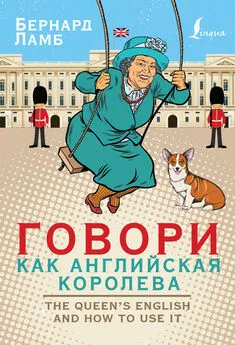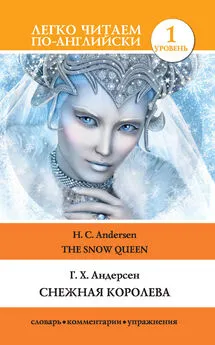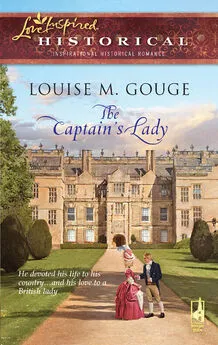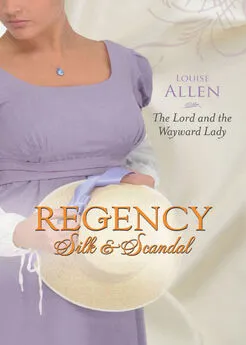Shannon Drake - The Queen's Lady
- Название:The Queen's Lady
- Автор:
- Жанр:
- Издательство:неизвестно
- Год:неизвестен
- ISBN:нет данных
- Рейтинг:
- Избранное:Добавить в избранное
-
Отзывы:
-
Ваша оценка:
Shannon Drake - The Queen's Lady краткое содержание
The Queen's Lady - читать онлайн бесплатно ознакомительный отрывок
Интервал:
Закладка:
“Yes. And how do I know all this and you do not?” Mary inquired, seemingly pleased to be able to share what she knew. “I suppose, in the last months, I have had quite a lot of communication with my brother James, and he has told me the story. It’s terribly sad. They were madly in love, and Rowan boldly declared himself to the lady’s father. They were granted permission for the union by both my brother, James, and Queen Elizabeth. She became with child immediately, but shortly before the babe was due to be born, she was in a coach accident on her father’s lands. She was badly injured and fell into a raging fever. The child did not survive, and Lady Catherine has not been of sound mind since, nor has her health ever improved. She is now quite insane and lives in Laird Rowan’s castle in the Highlands, where she is tended by a nurse and the Laird’s steward, who is both kind and loyal. She is very frail and, most fear, soon for the grave.”
Gwenyth simply stared.
Mary smiled sadly. “Close your mouth, my dear.”
“I…I…how sad.”
“Yes.” Watching her carefully, Mary said, “Don’t fall in love with him.”
“Fall in love with him? He’s a…wretched, uncouth boor!”
Mary smiled. “I see. Well, though this may be of no interest to you, I must tell you that he no longer cohabits with his wife, which would be pure cruelty, since she has the mind of a small child. And he has maintained a certain dignity in his situation.”
“Dignity?”
“I know this only from James, of course, but they say that though Laird Rowan has not become celibate, what affairs he has are…discreet and with women who cannot be hurt. And I would never want to see you hurt, my dear friend,” Mary said gravely.
“You needn’t worry,” Gwenyth assured her. “Ever. I’ve no intention of falling in love. It does nothing but make dangerous fools of any of us. And if I were to be idiot enough to fall in love, it would never be with a Highland savage such as Laird Rowan.”
Mary looked at the fire, smiling distantly. “There, you see, is the difference between us. How I long to fall in love, to know such great passion…. Ah, well. Marriage for me is a matter of contracts. Still, to once know that kind of love…”
“Mary,” Gwenyth murmured uneasily.
“Don’t worry, dear friend. When I marry again, I shall not forget what I owe to my people. Still, even a queen may dream.” She waved a hand dismissively in the air. “This has been a long, and difficult day, and there will be many more such to come.”
Aware that the queen had clearly declared that it was time to sleep, Gwenyth hastily headed for the door. “Good night, then, my queen.”
“Gwenyth…”
“I am on my way out. Now you are my queen.”
“And you remain my friend,” Mary said.
Gwenyth lowered her head, smiling, and departed, eager for her own bed in this great Scottish palace that would now be her home. As she hurried down the long hall toward her chambers, she heard voices and paused. She realized she was overhearing a conversation from one of the smaller chambers reserved for state occasions.
“There is nothing else to be done. You cannot go back on your word.” The words were spoken in a deep, masculine—and recognizable—voice. Laird Rowan Graham.
“We are asking for trouble.” She knew the second speaker’s voice equally well. James Stewart. Was the queen’s half brother really her friend? Or did he, in secret, covet the crown and believe it should have been set upon his own head?
“Perhaps, but there is no other option. We can only hope that the queen’s determination to avoid religious persecutions will prevail.”
“Then, as you have said, we must be prepared.”
“Always.”
Gwenyth was stunned when the door swung open and Laird Rowan exited, and she was caught standing, quite obviously eavesdropping, in the hall. She blinked and swallowed, as he eyed her gravely.
“I’m…lost,” she managed.
“Are you?” he inquired skeptically.
“Indeed,” she told him indignantly.
He offered a smile of grim amusement. “The ladies’ chambers are there—you should have turned. If you were seeking your own bed, that is.”
“And what else would I have been seeking?” she demanded.
“What else?” he repeated, then bowed mockingly but did not answer. He simply turned and left, and she was startled to feel a deep anger that he had dismissed her so easily.
Good God, why?
She disliked him intensely. True, she was sorry for the poor man’s wife, but it did not sound as if he led a very Christian life, and he was rude and annoying and presumptuous and…
She was exhausted. She was going to bed, to get well-deserved sleep. And she would not think of him at all.
Her room was small, but it was all her own. Not that she cared so much. Traveling with the queen in France, she had sometimes had quarters of her own, and sometimes, she had shared a bed with one or more of the Marys. That had led to much laughter, for they loved to imitate the esteemed princes, nobles and diplomats they met. Like the queen, they loved to dance and also to gamble, and they deeply enjoyed music. They had been together so long that they were like a family, and they had kindly accepted her into it. Still, she would never entirely be one of them.
And here at Holyrood she would sleep alone, she thought, as she surveyed her new home. She had a tiny window and even a tiny fireplace. The glow from the fire lit the window, and though it was small, she saw that it was stained glass. The firelight played across the image of a dove alighting on a tree. Below it was the Stewart coat of arms, the colors beautiful in the muted light.
She decided that here, back home in Scotland, she was glad for her privacy. The Marys had forgotten too much about Scotland. She loved them and did not want to lose their friendship, but she did not want to hear the country constantly vilified in comparison to France.
If she grew angry with someone, she could come here and rant into her pillow.
If she needed to think, she could find solitude.
If she needed to hide….
From whom would she need to hide? She mocked herself.
It didn’t matter. This lovely little place was her personal sanctuary.
Her mattress was comfortable, her pillow plump. Next to the fireplace was a very narrow door. When she opened it, she discovered that she even had a private necessary room. Amazing.
All in all, it was lovely to be home.
She carefully discarded her travel clothing, storing everything in her trunk; the room was far too small for clutter. Clad in her soft woolen nightgown, she was warm and comfortable. And exhausted. Yet when she lay in her bed at last, cozy and comfortable, she lay awake.
Thinking about Laird Rowan.
Her disturbing thoughts were broken when a clatter arose from the courtyard.
She leapt out of bed as if she had been singed by the fire. Panic, dreadful fear for the queen, seized her, and heedless of shoes or robe, she burst out into the hallway, the din from below continuing. She heard an incoherent screeching sound, followed by voices.
Along with many others who had been roused by the noise, she raced down the hall toward Mary’s rooms, where the door to the hall stood ajar. As Gwenyth and the ladies and guards rushed in, they found the queen awake and standing at one of the windows, looking down.
“It’s quite all right,” the queen assured them, lifting a hand and smiling at those who all but tumbled one over another in their headlong rush into her bedroom. “My subjects are greeting me. I am being serenaded,” she called cheerfully. She appeared wan and very tired, and yet she kept her smile in place. “Listen.”
“Mon Dieu!” cried Pierre de Brantome, one of Mary’s French escorts. “That is not a serenade. That is a like the sound of a thousand cats being stepped on.”
“Bagpipes,” Gwenyth heard herself say irritably. “If you listen, the sound is quite beautiful.”
“I have heard them before,” Brantome said with a huff, and stared at her, his eyes narrowing, as if he had just remembered that she’d been raised in what he clearly considered a benighted backwater.
“They have a lovely quality,” she assured him. “Which Mary, Queen of Scots, quite obviously appreciates.” She had never been quite sure what Pierre de Brantome’s role was in the household, though he considered himself a diplomat and courtier. Gwenyth wasn’t fond of him; he was too mocking of everything for her taste. But he did love Mary Stewart, and so, Gwenyth decided, he must be tolerated.
“Oh, yes, I love the cry of the pipes,” Mary said. “My dear Pierre, you must acquire a taste for this form of music.”
“It’s certainly loud,” Brantome commented drily.
That much was true. It seemed as if a hundred of her people, at the very least, were outside, that the cry of the pipes was mixing with the efforts of an off-key chorus.
Mary looked strained, clearly weary, but she was ever the queen. “How lovely,” she said simply.
And so they all listened until the impromptu concert ended, the French ministers muttering beneath their breath all the while, and then there was chatter and laughter as the household slowly returned to bed.
Gwenyth was the last to bid Mary good-night, and this time she headed unerringly down the hall to her own chamber.
Back in her own bed once again, she slept, but in her dreams she pictured Laird Rowan’s poor mad wife singing along to the plaintive call of a pipe, her laird, no longer her lover but her keeper, towering somewhere in the distance.
“Don’t fall in love with him,” Mary had warned.
How absurd.
If anything, she would have to fall out of loathing, if she could bring herself to do so.
CHAPTER THREE
IN THE FIRST DAYS THAT followed their arrival, Gwenyth began to feel with relief that the forebodings that had plagued her had been absurd. The Scots clearly loved their queen.
The Frenchmen among their party—and even those Scots who had lived so long in France that they seemed to think of themselves as French—began to cease their complaints. Holyrood was not just a beautiful palace but peopled with a household eager to serve the young queen, who was unceasingly kind to those around her. The forest surrounding the palace was thick and wild, and soon became a popular spot for the court to go riding, and there was always an impressive view of Edinburgh Castle, high upon its rocky tor.
The view of the stalwart stone fortress even had its effect on those who had been less than happy to leave France behind. Gwenyth had taken the Marys on an afternoon shopping expedition along the Mile, and they had commented on the very unique charm of the Scottish capital. Everything seemed to be going well.
Then came the first Sunday.
“This would not happen in France,” one of the French retainers declared.
Though she was herself a Protestant, Gwenyth had vowed that she would attend Mass at the queen’s side while they resided in Scotland, in support of her choice, and then observe her own rites, as well. The queen was now ready for church, having been assured by her half brother that she would be free to celebrate Mass just as she had in France.
Mary’s French mother had been a devout Catholic, and when Mary had left as a child, the outcry against Catholicism had not yet begun.
Gwenyth had come to know enough about James Stewart, himself a son of the reformed Scottish church, to believe he intended to honor his vow to Mary. He was a dour and stalwart Scotsman by nature, but she had no cause to doubt his word. Perhaps he felt somewhere in his heart that he should wear the crown, but though he bowed to the Church of Scotland, he was like Mary in many ways. Like her, he abhorred the concept of violence over religious differences, and he proved it now.
Читать дальшеИнтервал:
Закладка:










